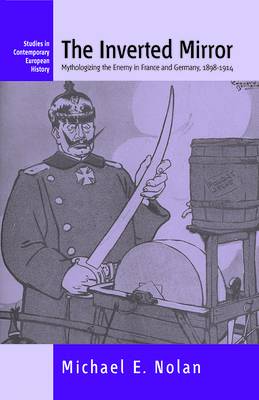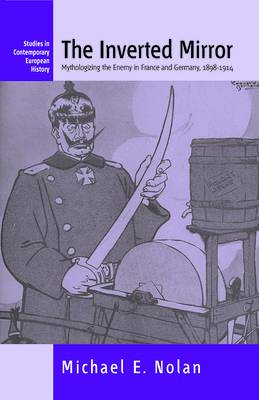
- Afhalen na 1 uur in een winkel met voorraad
- Gratis thuislevering in België vanaf € 30
- Ruim aanbod met 7 miljoen producten
- Afhalen na 1 uur in een winkel met voorraad
- Gratis thuislevering in België vanaf € 30
- Ruim aanbod met 7 miljoen producten
Omschrijving
It is hard to imagine nowadays that, for many years, France and Germany considered each other as "arch enemies." And yet, for well over a century, these two countries waged verbal and ultimately violent wars against each other. This study explores a particularly virulent phase during which each of these two nations projected certain assumptions about national character onto the other - distorted images, motivated by antipathy, fear, and envy, which contributed to the growing hostility between the two countries in the years before the First World War. Most remarkably, as the author discovered, the qualities each country ascribed to its chief adversary appeared to be exaggerated or negative versions of precisely those qualities that it perceived to be lacking or inadequate in itself. Moreover, banishing undesirable traits and projecting them onto another people was also an essential step in the consolidation of national identity. As such, it established a pattern that has become all too familiar to students of nationalism and xenophobia in recent decades. This study shows that antagonism between states is not a fact of nature but socially constructed.
Specificaties
Betrokkenen
- Auteur(s):
- Uitgeverij:
Inhoud
- Aantal bladzijden:
- 154
- Taal:
- Engels
- Reeks:
- Reeksnummer:
- nr. 2
Eigenschappen
- Productcode (EAN):
- 9781845453015
- Verschijningsdatum:
- 1/09/2006
- Uitvoering:
- Paperback
- Formaat:
- Trade paperback (VS)
- Afmetingen:
- 152 mm x 229 mm
- Gewicht:
- 213 g

Alleen bij Standaard Boekhandel
Beoordelingen
We publiceren alleen reviews die voldoen aan de voorwaarden voor reviews. Bekijk onze voorwaarden voor reviews.











